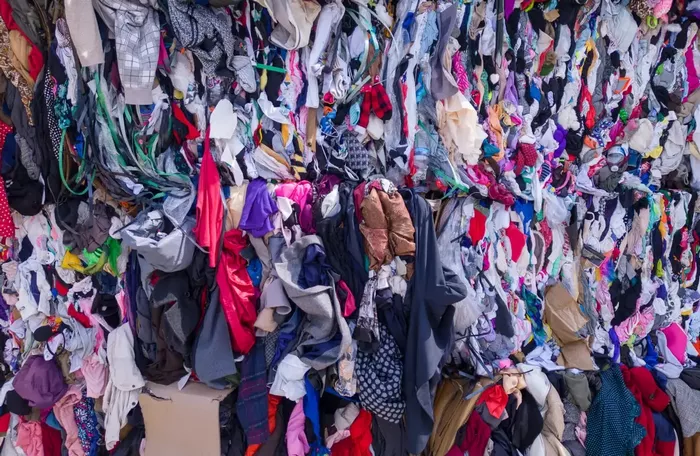Sustainable fashion advocate Wendy Ward has launched a bold initiative targeting the wasteful practices of fast fashion brands, according to a report by The Guardian. Frustrated by the growing mountain of discarded clothing and the industry’s inadequate recycling efforts, Ward began the #TakeItBack campaign, encouraging consumers to send their worn-out garments directly back to the brands that sold them.
The campaign stems from the vast environmental damage caused by fast fashion. Cheaply produced clothing items, often made with synthetic materials, are rapidly discarded, clogging landfills and creating a global waste issue. Ward, seeking to push brands into accountability, sent a decade-old polycotton bedsheet back to British retailer Sainsbury’s, accompanied by a handwritten note urging the company to address the life cycle of its products. In the note, she stated, “I would really love to hear what you decide to do.”
Ward’s actions resonated widely, inspiring her Instagram followers to participate by returning used clothing to other major retailers such as H&M and Marks & Spencer. The #TakeItBack movement demands that brands take full responsibility for their products, rather than transferring the burden of waste management to countries with limited infrastructure to handle it. This consumer-driven movement reflects the growing sentiment that fashion houses must be held accountable for the environmental costs of their production and distribution models.
The campaign aligns with a wave of regulatory changes emerging across Europe. Extended Producer Responsibility (EPR) schemes, already implemented in countries like France, Hungary, and the Netherlands, are designed to make producers financially and operationally responsible for managing the waste their products create. Under EPR, fashion companies will be required to fund and execute proper disposal, recycling, or reuse initiatives for their textiles.
Despite growing public pressure and the presence of take-back programs, critics argue that many brands continue to fall short. These programs often promise recycling or repurposing, but investigations have shown that a significant portion of the returned items are either incinerated or exported to developing nations, where they become part of a larger environmental crisis. Ward describes this dynamic as “waste colonialism,” wherein Western countries ship their textile waste to regions ill-equipped to manage it sustainably or ethically.
In response to these failures, consumers and organizations alike are exploring alternatives. Secondhand fashion is on the rise, as more people seek to reduce their footprint through thrift shopping and embracing durable, ethically made clothing. On the institutional level, global projects are gaining momentum. The United Nations Environment Programme is championing circular fashion models that promote upcycling, sustainable design, and extended product lifespans. Meanwhile, tech innovators like Cetia Robotics are developing advanced solutions for automating and scaling textile recycling, aiming to increase the efficiency and effectiveness of material reuse.
For Wendy Ward and like-minded activists, the message is clear: real change requires brands to take ownership of their products from start to finish. It’s not enough to market sustainability while continuing practices that harm the planet. Only when fashion companies commit to genuine circularity—from production to disposal—can the industry begin to undo the damage it has inflicted.
Related Topics
- EU Cracks Down on Fashion Waste as Industry Faces Pressure to Embrace Circular Economy
- Perthshire Farming Duo Launch Fully British-Made Outdoor Clothing Brand, TorraMór
- Levi Strauss Sells Dockers Brand to Authentic Brands Group for $311 Million to Refocus on Core Labels

